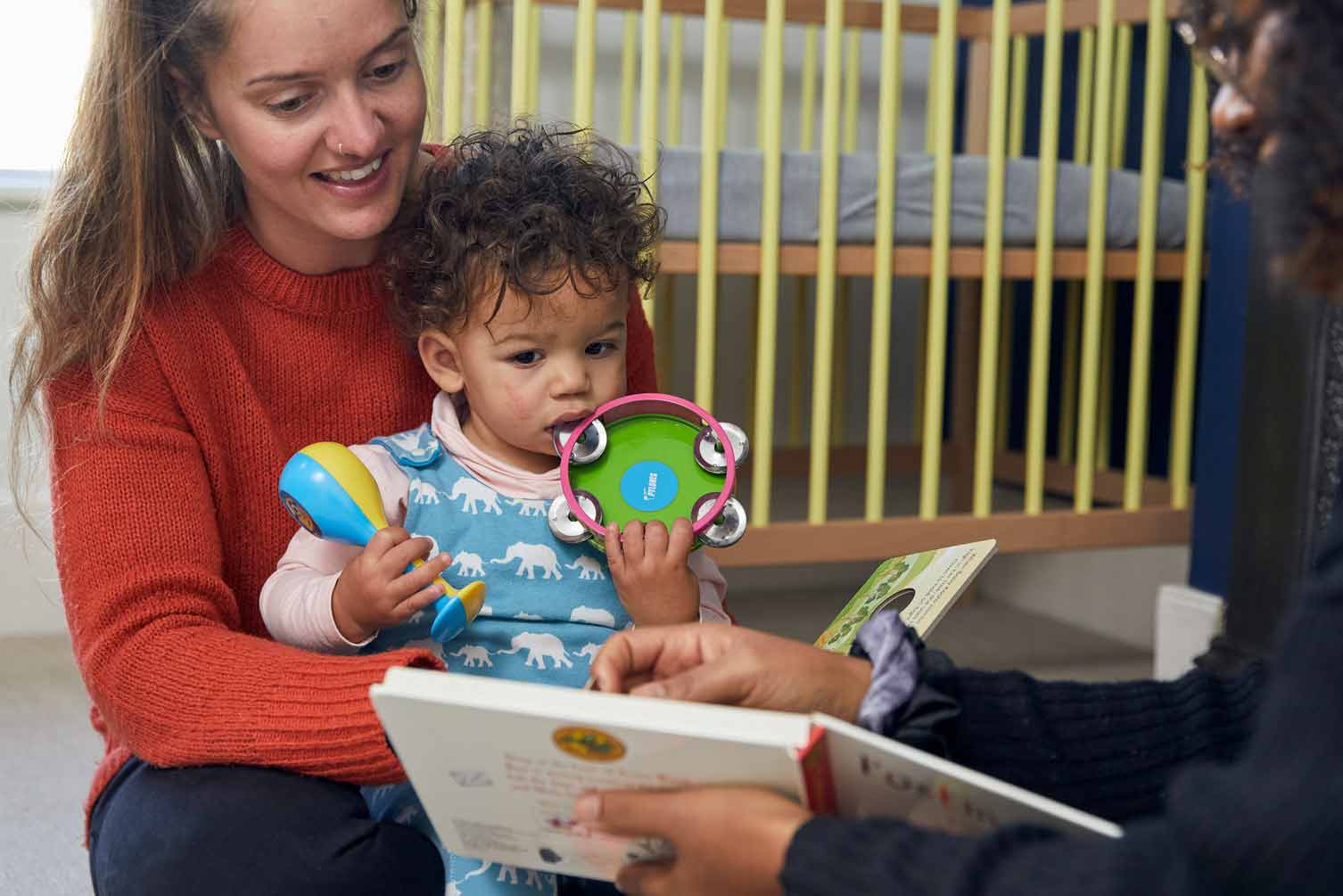
The perinatal period is that crucial time – during pregnancy and after birth - when parents are finding their feet and building bonds with their baby. But this can also be a challenging time for new parents. Up to one in five mums and one in 10 dads face mental health problems during pregnancy and after the birth of their child. Depression, anxiety, OCD, PTSD, and postpartum psychosis are the most common perinatal mental health conditions facing new mums. Dads can also suffer mental health problems during this time, like depression and anxiety.
Untreated perinatal mental health problems can have a devastating impact on the health and wellbeing of mums, their partners and babies, so it is vital that the mental health services families need are there to support them – wherever they live.
This week marks Maternal Mental Health Awareness Week and we’re pleased to raise awareness of the crucial work our charity partner, the NSPCC, is doing to help ensure that parents get the right mental health support at the right time, so every family gets a fair start in life.
Maternal Mental Health Awareness Week is an opportunity for us all to recognise the mums and families affected by perinatal mental health problems, as well as to call for more support to be available for those struggling.
Perinatal mental health problems can affect mums and families in a range of different ways. Some mums may experience perinatal mental health problems for the first time in pregnancy or after birth, and others may have a history of mental health problems which persist, deteriorate, or reoccur in the perinatal period. But what all parents can benefit from is knowing what support and advice is available to them and being encouraged to speak out if they need help and support with their mental health during this time. We’ve pulled together some of the best resources from the NSPCC – tips, exercises and advice to help families better understand perinatal mental health, what they can do to take care of their wellbeing, and what we can all do to support those around us who might be struggling.
1. Discover baby parenting tips, including how to look after your mental health, getting your baby to sleep, and managing stress.
2. Know who you can turn to if you need help. The NSPCC has lots of mental health and parenting advice, with details of organisations that offer support.
3. Use the NSPCC’s Look, Say, Sing, Play activities to interact and bond with your baby – these exercises also develop your baby’s brain!
4. Fight for a Fair Start: learn how the NSPCC has been campaigning to ensure parents across the UK get the perinatal mental health support they need.
5. If you or someone you know is struggling, you can find a range of support information through the Maternal Mental Health Alliance or contact the NSPCC Helpline on 0800 800 5000.
No family should face perinatal mental health challenges alone. It’s vital that every parent feels able to reach out for support when they need it. We’re proud to support the NSPCC’s work helping children, parents and communities.
You can read more about our partnership and how we’re raising money for the NSPCC through our special range of NSPCC shoes here.
Author: Stacey, published 29-04-2022.